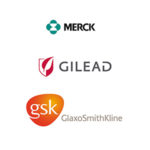 Drugs from companies, such as GlaxoSmithKline (NYSE:GSK), Gilead Sciences (NSDQ:GILD) and Merck (NYSE:MRK), are reportedly being considered for large-scale trials evaluating injectable HIV prevention therapies.
Drugs from companies, such as GlaxoSmithKline (NYSE:GSK), Gilead Sciences (NSDQ:GILD) and Merck (NYSE:MRK), are reportedly being considered for large-scale trials evaluating injectable HIV prevention therapies.
Eventually, researchers hope to produce matchstick-sized implants that could provide year-long protection to vulnerable populations.
Foster City, Calif.-based Gilead has a once-daily pill, Truvada, which prevents HIV infection during sex. Pre-exposure prophylaxis, also known as PrEP, can lessen the risk of catching the virus by more than 90% if the pill is taken regularly.
Many patients, however, do not adhere to the regimen and some women reported in trials in Africa that they were reluctant to have HIV tablets in their houses because of the virus’s stigma.
The World Health Organization has recommended PrEP for all groups at risk of infection – and for good cause. Nearly 1.9 million people catch HIV each year and that number hasn’t changed since 2010.
Experts say that a long-lasting injection would add privacy for patients. Some imagine that an implant could combine contraception and HIV protection, according to Reuters.
“The more options there are the better and I think for some individuals injections will be great,” Jean-Michel Molina, professor of infectious diseases at Hospital Saint-Louis in Paris, told the news outlet. “Now that we know antiretrovirals have great potential to prevent HIV infections, it is time to really assess other ways to deliver these drugs.”
GlaxoSmithKline’s majority-owned ViiV Healthcare unit is working with U.S. government and the Bill & Melinda Gates Foundation to develop an injectable PrEP. This month, 2 separate studies were launched to evaluate the company’s experiment drug cabotegravir in combination with another compound for HIV. GSK plans to kick off a 4-year trial as early as next month testing the drug in gay men in the Americas and Thailand. A 2nd trial next year will assess the medicine in African women, according to Reuters.
“The holy grail is a vaccine, but we don’t have a vaccine yet,” Myron Cohen, from the University of North Carolina at Chapel Hill and the ViiV prevention study program, said.
Gilead is studying its next-gen HIV drug Descovy, an oral PrEP that has milder side effects compared to Truvada.
Slow-releasing drug implants may prove to be an important innovation in HIV treatment, but they have yet to make it to human trials. Last year, an experiment in beagles using a Gilead drug demonstrated promising results. Some candidates from GSK and Merck are also viewed as potential implant options.
The size of the HIV prevention market is uncertain – Truvada is the only medicine approved for HIV prevention and is used by up to 90,000 people in the U.S. It is beginning to enter European markets, as France offers free supplies.
There is resistance, evidenced by a French government campaign promoting HIV awareness that was attacked by some French majors. Some say that PrEP dilutes the importance of condom use, since it cannot prevent other sexually transmitted infections. But Sheena McCormack from the University College London told Reuters that this argument misses the point.
“Sometimes people can’t see the wood for the trees. The STI that lasts a lifetime and costs governments a lot of money is HIV,” McCormack said.
Material from Reuters was used in this report.

